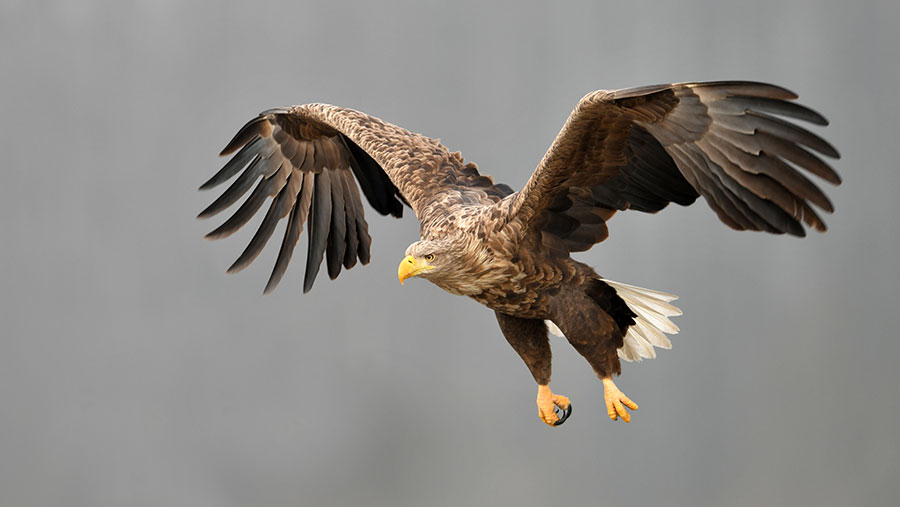Scots farmers condemn delays to sea eagle management aid
 © Piotr Krzeslak/Adobe Stock
© Piotr Krzeslak/Adobe Stock Scottish sheep farmers and crofters have criticised delays in essential funding for mitigation measures against white-tailed eagle predation.
The Scottish government is so far refusing to allow NatureScot to release the allocated funding under the Sea Eagle Management Scheme (SEMS) for 2024, which helps farmers to reduce the predation impacts of the birds.
NatureScot has accepted that sea eagle predation of lambs is a significant issue in places for Scottish farmers and crofters.
See also: NFU Scotland disputes study claims on sea eagle predation
This year there will 185 existing participants and an additional 21 new scheme entrants, if the funding is released.
The scheme helps fund mitigating measures to attempt to reduce sea eagle predation of lambs.
There are different levels of funding available according to individual cases.
Most holdings are capped at a maximum of £1,500 per year, but places that have demonstrated they have a more serious issue can receive up to £3,500 extra in funding.
This additional funding can be used, for example, to help hire a contract shepherd who is paid to monitor the flock from lambing through to June to protect sheep from predation.
Long-term predation
David Colthart, a sheep farmer based in Argyll, has experienced serious predation issues for more than 18 years with white-tailed eagles, also known as “sea eagles”.
He said: “This funding that has not been released has already been allocated within NatureScot’s budget for a scheme that has been running for many years.
“This aid is essential to try and reduce the predation on our farms and crofts, especially in the middle of lambing when farms and crofts are already experiencing issues.
“It’s absolutely disgraceful that the Scottish government, for whatever reason, is not allowing NatureScot to release these funds.”
Many farmers and crofters have put a lot of faith in NatureScot in running the scheme, he added.
But Mr Colthart said they feel let down over many years and feel that the Scottish government and NatureScot do not fully understand the financial and emotional impact white-tailed eagle predation has on farmers and crofters.
“We have an apex predator that we cannot control and the population is expanding exponentially, primarily along the west coast and the Isles. The problem is going to get worse,” he added.
An RSPB report says white-tailed eagles contribute about £8m to the economy each year for the Isle of Mull alone. Farmers and crofters believe that in view of this, Scottish government should be allocating more funding to mitigate the impacts of white-tailed eagle predation.
About 90% of reports of white-tailed eagle predation on flocks have been on the west coast and the isles to date, but now farmers in the more intensively farmed areas are reporting problems.
Funding delays ‘unacceptable’
NFU Scotland president Martin Kennedy said it was “wholly unacceptable” that hill farmers and crofters in the midst of a “very challenging” lambing season had faced delays to the release of funding for the SEMS scheme, the majority of which are simple rollovers.
“White-tailed eagles are already active in lambing parks in several parts of Scotland, as seen in much-publicised social media posts this week, and the poor weather may create even more problems with predation of lambs as their alternative prey tend to be scarce,” he added.
Mr Kennedy has raised the matter again with cabinet secretary Mairi Gougeon.
A Scottish government spokesperson said: “Further information on the 2024 Sea Eagle Management Scheme will be provided shortly.”
